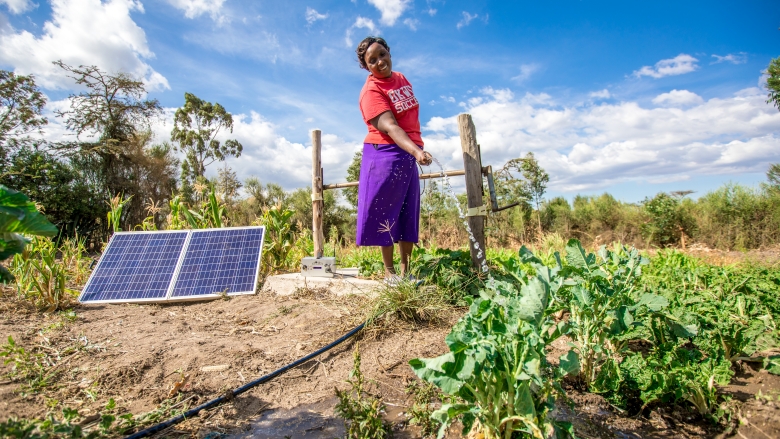Nigeria’s agricultural landscape has long struggled with the limits of rain-fed farming, with only 5.4% of cultivated land being irrigated, compared to over 30% and 50% in countries like India and China, respectively.
Farmers have heavily relied on petrol-powered pumps, but fluctuating fuel costs and indefinite rainfalls have worsened food insecurity. A dry-season harvest of key crops like tomatoes and onions dropped sharply, as many smallholders in 2024, could no longer afford irrigation fuel.
It is as a result of such occurrences that the National Economic Council (NEC) has approved the rollout of solar-powered irrigation pumps, starting from the 2025 dry-season farming cycle.
Developed by the National Agency for Science and Engineering Infrastructure (NASENI), these locally designed pumps are set to replace petrol-based systems, thereby creating a cleaner, cheaper, and more reliable solution for farmers.
Powering Food Security
Irrigation may be the missing link in Nigeria’s food security drive. Rain-fed agriculture leaves farmers at the mercy of climate variability, while petrol costs consume the income of smallholder farms through fuel costs.
By maximising solar energy, the new pumps will reduce expenses and enable year-round cultivation. By implication, this means a more consistent harvest, a reduction in food prices, and reduced post-harvest losses.
The NEC’s plan also aligns with Nigeria’s broader agricultural interventions, including the enrollment of 250,000 farmers into insurance schemes across eight states and a ₦250 billion facility through the Bank of Agriculture to support small-scale producers.
Together, these efforts are designed to create stability in food systems while easing the pressure of inflation on households.
For farmers, the shift to solar-powered irrigation assures a direct boost to higher productivity and, in turn, profitability, as eliminating petrol costs frees up resources for seeds, fertilisers, and equipment. Access to reliable irrigation also allows farmers to cultivate multiple cycles annually, expanding both yields and income.
A far-reaching impact would be in the place of employment. By boosting local agriculture, Nigeria can unlock significant economic benefits, including job creation, which is currently at 35%, reduced import dependence, and substantial savings on foreign exchange.
This, in turn, can make food more affordable and enhance food security, ultimately driving economic growth and development.
Climate and Carbon Opportunities
The move also strengthens Nigeria’s climate agenda. Agriculture is a significant contributor to emissions through fuel use and inefficient land practices. The replacement of petrol pumps with solar technology will reduce emissions to a reasonable level.
Farmers will also get more streams of income by becoming eligible for carbon credit programmes, which let people or countries earn money for reducing pollution.
This approach reflects a growing understanding that agricultural policy must address both production and long-term sustainability. In the long run, farmers who integrate into carbon markets could earn from climate-smart practices.
The Tinubu administration is taking a fresh approach to supporting dry-season farming by leveraging local innovation, renewable energy, and private financing to develop affordable irrigation solutions.
This marks a remarkable shift from previous efforts, which often didn’t directly address the high costs of irrigation.
The solar-powered irrigation pumps are a game-changer for Nigerian farmers. No more relying on unpredictable rainfall, as they’ll have control over their water supply.
And for the country, it’s a big step towards food self-sufficiency and reducing imports. Nigerian farmers will be grateful not to remain at the mercy of the rains.
Summary not available at this time.






